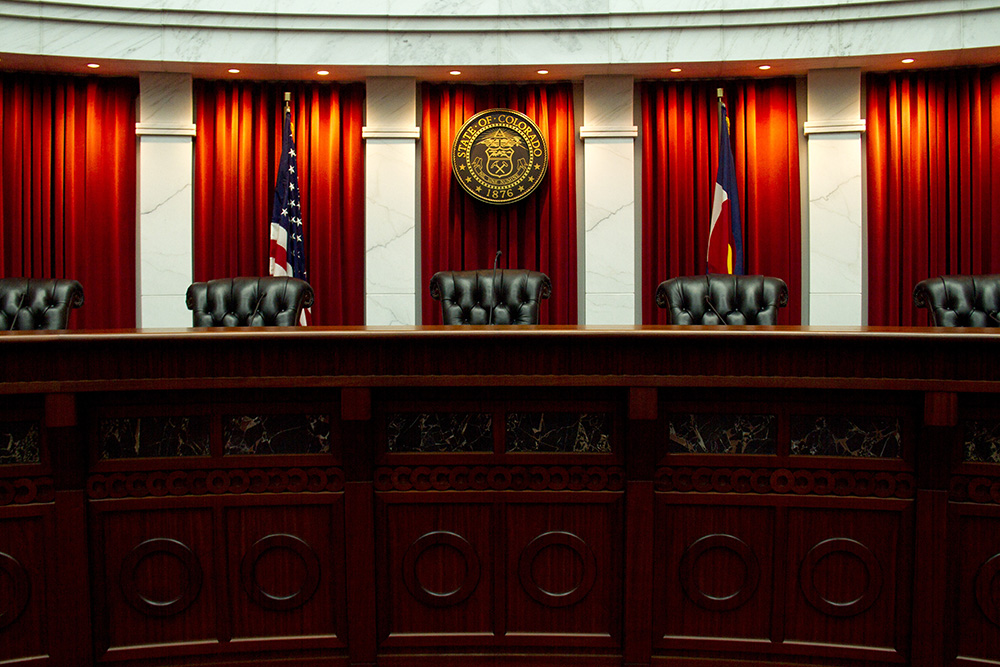Non parents and stepparents in Colorado have the right to seek parenting time and decision making on behalf of children they have nonexclusive physical care of for at least 182 days. The Colorado Supreme Court issued a decision in favor of one of Griffiths Law’s clients with a vote of 7-0, holding that nonparents who have non exclusive care of a child may have standing to bring a case for the allocation of that child’s parental responsibilities. See In re E.K., 2022 CO 34.
New Developments Related to Psychological Parentage
In Colorado, of course biological and adoptive parents can seek the allocation of parental responsibilities over their children. However, there are other classes of non-parents who can also seek the allocation of parental responsibilities or visitation. These groups include grandparents, stepparents, as well as other non-parents who meet the strict criteria under Colorado state law. The most recent Colorado Supreme Court decision addressed the rights of non-parents, such as a stepparent or adult sibling, to seek the allocation of parental responsibilities of their stepchild or younger sibling. To do so, the law requires the non-parent to meet two requirements. First, they must show that they have standing under C.R.S. § 14–10–123(1). And second, they must show that they are a psychological parent to the child.
The recent Colorado Supreme Court case addresses the first component, standing. Under the law, a non-parent has standing to seek the allocation of parental responsibilities or visitation so long as they had “physical care” of the child from 182 days or more before the date that they last had physical care of the child, and so long as the parent brings the action within 182 days of that physical care ending. Colorado courts have gone to great lengths to define what the term “physical care” means. At its basic level, it is synonymous with the type of physical care that a parent would provide to their own child. The Colorado courts have repeatedly said that nannies, babysitters, teachers, and other non-parents who have physical care of the child temporarily do not qualify because their care is different from that of a true parent. For example, nannies and babysitters do not treat the child as their own, sleep in the same household, purchase food and other goods for the child, or make decisions on the child’s behalf. Stepparents, on the other hand, often do many of these things on a regular basis.
Two Common Objectives Addressed in Colorado Supreme Court Decision
Two common objections to non-parent standing came up in the Supreme Court’s decision. The first involved the biological parent’s consent, and whether a biological parent has to consent to the non-parent’s physical care of the child. The Supreme Court answered no, that the non-parent does not need a biological parent’s consent and can acquire physical care of the child simply by living with and caring for them just as any other parental figure. The second objection was the common argument that the care of the child needs to be exclusive, meaning that no one besides the non-parent cared for and lived with the child during the 182 day period. The Supreme Court said that such exclusive care is not necessary, and non-exclusive care is enough to meet the statute’s criteria. In simple terms, this means that a stepparent living together with a biological parent, perhaps in a new marriage, can acquire standing even if they and the biological parent care for the child together.
Summary of the Decision
To summarize, so long as a non-parent parent has “physical care” of the child for 182 days, regardless of whether the biological parents consent or provide care jointly with the non-parent, the non-parent may nonetheless have standing to seek visitation or the allocation of parental responsibilities of that child. However, standing only refers to the first question of whether the non-parent can seek certain rights from the court. It does not answer the second component, psychological parentage. Once a non-parent has standing, a hearing is still necessary to determine whether they are, in fact, a psychological parent to the child. The test for whether a parent is a psychological parent has been addressed in prior cases, such as In re Custody of C.C.R.S., 892 P.2d 246, 257 (Colo. 1995).
Practical Considerations
The most recent Colorado Supreme Court decision only addressed whether and when a non-parent has standing to seek rights as a psychological parent. This decision leads to a couple of practical implications for parents in Colorado. One, whether a child in Colorado can have three or more parents and non-parents who have parental responsibilities allocated to him or her, rather than just two. Two, parents with children who enter new relationships need to know that their new partner or spouse could acquire parental responsibilities over their child under certain circumstances. Three, non-parents need to know that they could have legal rights related to a minor child in the event of a divorce or breakup from the child’s parent. Four, Colorado courts clearly take an expansive view of families today and will always aim to serve the child’s best interests under the circumstances.
Christopher Griffiths is a Shareholder and Chief Financial Officer at Griffiths Law—a law firm specializing in family law and civil litigation.
Kim Newton is an Associate Attorney at Griffiths Law PC. She focuses her practice on both civil litigation and family law.
